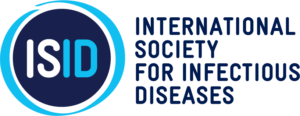WORLD CHAGAS DISEASE DAY
World Chagas Disease Day – April 14
World Chagas Disease Day, observed on April 14, raises awareness about Chagas disease, a neglected tropical disease caused by the parasite Trypanosoma cruzi. Transmitted primarily through the bite of infected triatomine bugs (kissing bugs), the disease can also spread through blood transfusion, organ transplantation, or congenital transmission. Often called a "silent disease," Chagas can remain asymptomatic for years before leading to severe heart and digestive complications. This day highlights the importance of early detection, access to treatment, vector control, and global efforts to eliminate Chagas disease as a public health threat, especially in Latin America, where it is most prevalent.
Resources
Time to Integrate Chagas Disease into Primary Health Care
Chagas disease is an under-recognized infection that, if detected early, can be cured or its clinical course improved. Usually, the disease progression is slow and often shows as an asymptomatic clinical course, but without treatment, Chagas disease can lead to severe cardiac and digestive alterations, and even become fatal.
World Chagas Disease Day
Today is World Chagas Disease Day. According to the WHO, there are approximately 6-7 million people infected with Chagas disease worldwide, with 12,000 deaths every year. First diagnosed by Dr. Chagas in 1909, is a disease caused by the parasite Trypanosoma cruzi, which is found in the Americas and is primarily transmitted to animals and people by triatomine bugs in rural areas of Latin America; other ways of transmission include via blood transfusion, organ transplantation, mother-to-baby, and foodborne transmission.
Uniting Global Efforts for Awareness and Action
World Chagas Disease Day is observed on April 14th to raise awareness around Chagas disease, also known as American trypanosomiasis. It is considered a neglected tropical disease, mostly endemic in countries in the Americas, although the migration of infected people can spread the disease to non-endemic countries. It is primarily transmitted to animals and people by triatomine bugs in rural areas of Latin America; other ways of transmission include via blood transfusion, organ transplantation, mother-to-baby, and foodborne transmission. Usually, the disease progression is slow and often shows an asymptomatic clinical course, but without treatment, Chagas disease can lead to severe cardiac and digestive alterations and even become fatal.
